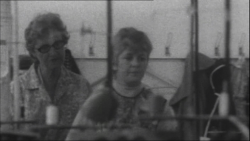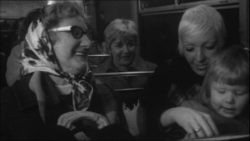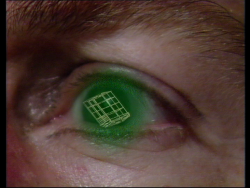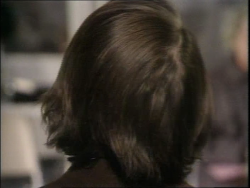by DAVID ROLINSON
Play for Today Writer: Colin Welland; Producer: Kenith Trodd; Director: Roy Battersby
This essay continues from Part 2 and Part 1.
The debate
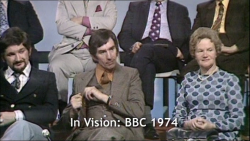
Producer Kenith Trodd faced criticism and praise from local workers, employers and critics in an edition of the discussion programme series In Vision (1974-75) that was dedicated to Leeds – United!1 The play had a largely female cast who were positioned as participants: its lead actors and its extras were social actors, as mass crowds reconstructed their real-life participation in the 1970 events. The guests on In Vision include women workers who respond to the techniques by which their experiences were depicted by that male-authored text. There is a revealing tension between the play and the discussion programme. Women are addressed variously as subjects, participants and audiences, and this problematic movement is one with which the women workers are partly complicit, as we shall see. Women are the minority – 3 out of 10 guests – and are addressed in part as audience members, albeit in order to comment on the textual representation of their social participation. The programme opens up gendered discourse relating to the workplace and drama, or even contributes to that discourse. Of course, In Vision is a different type of text, with its own codes and conventions as well as its own guidelines on issues such as balance.
In Vision, BBC2, tx. 1 November 1974. ↩

